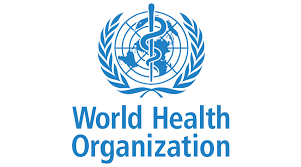
World Health Organization
tendersglobal.net

Job Description
<!–
Description
–>
Violent injury contributes a substantial disease burden in the region, especially in the on-going conflicts in Libya, occupied Palestinian territory, Somalia, Syria, Yemen and Afghanistan. High incidence of violent injury requires sophisticated and well-resourced response mechanisms, placing enormous strains on already under-resourced and over-burdened health systems. But traditionally, only a very small number of humanitarian agencies have developed capacities for providing trauma care in conflict settings. Most humanitarian health agencies have not prioritized injury care in conflict because of mandate issues, security concerns and capacity and resource gaps; when non-specialized agencies do engage, it is too often uncoordinated and inconsistent with international standards. But the growing burden of trauma in current-day humanitarian emergencies can no longer be ignored. In several recent major humanitarian operations, WHO therefore has stepped in to lead and coordinate the trauma response.
In spite of the demonstrated effectiveness of WHOs interventions, implementation of trauma services that apply best practice referral pathways and clinical care remains ad hoc and unpredictable, dependent on the technical and financial resources available at the time. WHO is committed to ensure that effective trauma services are consistently established during humanitarian emergencies in the Eastern Mediterranean Region and to use these services to build the longer-term resilience of emergency medical systems.
The WHO has recently established the Operational Trauma Initiative, which aims to measurably improve health outcomes from trauma driven by humanitarian emergencies in the Eastern Mediterranean Region (EMR). As a new approach to working in humanitarian emergencies, at the heart of this initiative is a small, specialized Trauma Operational & Advisory Team (TOpAT). The TOpAT is a mobile team that works in humanitarian emergencies and provides both technical direction, and hands- on support. In some countries, where the needs are particularly high, the TOpAT will be complimented by a dedicated focal point in-country; an extension of the TOpAT. All of the interventions are judged by their ability to positively impact trauma patient outcomes.
Deliverables:
Under technical supervision of the Regional Trauma Specialist, the consultant will be responsible for the following key outputs:
- Lead the development of the Trauma Stabilisation Points across the EMR as a new approach to conflict settings
- Lead the development of the operational handbook for TSPs and provide advisory support to countries already implementing the concept Identify and test the TSP concept in 2-3 countries, documenting results, identifying solutions, and feeding back into the TSP concept
- Design and deliver a regional training workshop on TSPs and establish a community of practice among leading health care professionals across the EMR
- Deliver the MCM WHO Academy accredited training targeting at least 150 healthcare professionals and aiming to establish a cohort of at least 50 national instructors.
- Support the establishment of a MCM platform to monitor impact
- Lead the flying trauma team for deployment to priority countries to establish a surge response to trauma needs in some of the most complex emergencies in our region
- Design trauma interventions and build consensus with MoH, different stakeholders and WCOs on how to implement in a timely manner
- Provide expert advice to regional and global working groups and draft regional proposals
Educational Qualifications:
- Essential: Minimum an advanced university degree (Master’s degree) in trauma sciences
- MBBS and specialty in trauma is essential
- At least 10 years of humanitarian and/or military experience in delivering complex trauma programmes
- Including experience in delivering training in low-resource and conflict settings
- Extensive experience in designing and implementing simulations in complex settings
- International experience in one of the above fields is mandatory.
- Proven skills in data analysis of a range of data sources.
- Extensive demonstrable editorial knowledge and experience in the selection and processing of manuscripts
- Proven skills and know-how in data representation and visualisation.
- Ability to work in a flexible manner under pressure to meet deadlines.
- Ability to work in a collaborative manner.
- Clear understanding of implementation methods and implementation science where applicable.
- Concrete skills and background of analyzing large data sets especially from low and middle-income countries.
- Essential: Excellent knowledge of English
<!—
Recommend your friend
<!–
–>
To help us track our recruitment effort, please indicate in your cover/motivation letter where (tendersglobal.net) you saw this job posting.
Related Jobs
-

CONSTRUCTION OF PAY PER USE COMMUNITY BOREHOLE
Habitat for HumanityUnited Republic of TanzaniaUnited Republic of Tanzania- Contract
-

Mental Health Support Worker – Roma
StridePart TimeContractPart TimeContract- Contract
-

Senior Educator
Appalachian Mountain ClubPinkham Notch, New HampshirePinkham Notch, New Hampshire- Contract
-

ACCESS TO HOUSING FINANCE
Habitat for HumanityUnited Republic of TanzaniaUnited Republic of Tanzania- Contract
